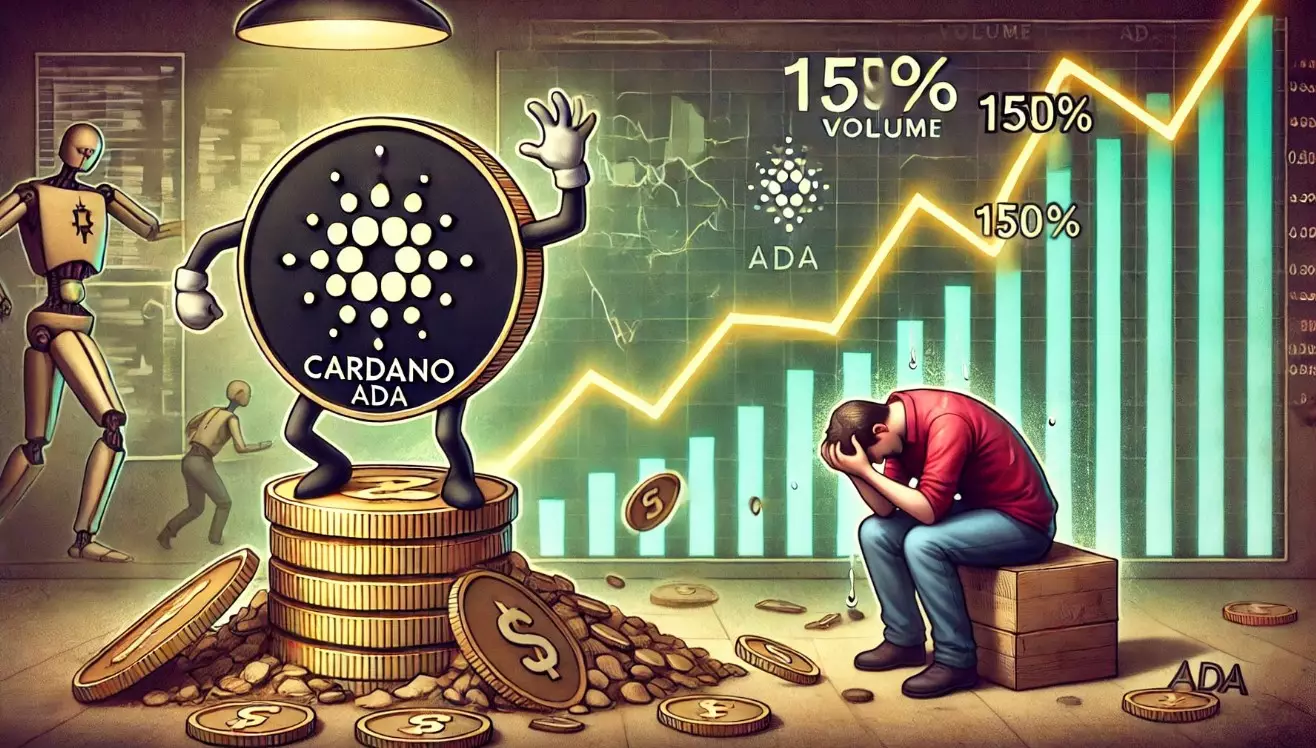In September 2023, the Cardano blockchain underwent a significant upgrade known as the Chang hard fork. This development has been touted by the platform’s founder, Charles Hoskinson, as a pivotal moment that reinforces Cardano’s dominance within the cryptocurrency landscape. Traditionally, the dominance of cryptocurrencies like Bitcoin (BTC) and Ethereum (ETH) has been widely recognized, yet Hoskinson’s assertions suggest a paradigm shift in how we evaluate blockchain superiority, particularly through the lens of decentralization.
Hoskinson, noted for his co-founding role in Ethereum, has been vocal about the strides Cardano has made following the Chang upgrade. He claims that this blockchain now stands as a “number one” choice, particularly emphasizing its decentralized attributes as a competitive edge over larger currencies. His comments reinforce a growing sentiment that the future of blockchain will hinge not merely on market capitalization but also on the principles of governance and decentralization that foster genuine community engagement.
At the Token2049 Conference in Singapore, Hoskinson elaborated on Cardano’s innovative governance model, which signifies a shift in power dynamics. He specifically addressed the perceived centralization issues in Ethereum, pointing out that Vitalik Buterin’s central role can create developmental bottlenecks. In contrast, Cardano’s new governance framework redistributes influence, enabling delegated representatives (DReps) to have a voice in the decision-making process. This community-first approach facilitates a robust platform where innovation can thrive independently of any individual’s authority.
Hoskinson boldly claimed, “Charles, alive or dead, doesn’t matter. There’s still going to be innovation on a daily basis.” This assertion underscores the resilience of Cardano’s structure and its potential for sustainability. By ensuring that contributions to the network are not solely reliant on a single founder, Cardano sets the stage for ongoing development shaped by community input rather than individual whims.
The quantitative achievements of Cardano post-upgrade are impressive and further solidify its standing in the blockchain arena. With over 74,000 Plutus scripts developed and approximately 1.3 million delegated wallets created in seven years, the growth metrics speak volumes. Such numbers highlight not only user engagement but also the active development and deployment of decentralized applications (DApps) on the Cardano platform, with 1,373 projects launched as documented by Input Output Global (IOG), Cardano’s development entity.
In social media updates, Hoskinson expresses excitement regarding Cardano’s trajectory towards achieving advanced decentralized governance. He portrays the network as being on the brink of important milestones, hinting that Cardano is ready to unveil features that could further its competitive edge in the blockchain ecosystem.
Looking ahead, Cardano’s roadmap includes a transition away from its initial genesis keys, which have guided the network’s management since its inception. This shift intends to empower a broader network of stakeholders, particularly focusing on increased participation from stake pool operators (SPOs) and DReps, as well as the establishment of a Constitutional Committee (CC).
The anticipation surrounding the upcoming Voltaire phase indicates that Cardano is gearing up to achieve a fully self-sustaining blockchain environment. The final use of the Genesis keys may catalyze another hard fork, marking the full realization of Cardano’s new decentralized governance model. However, specifics regarding timelines and details on these developments remain to be clarified by IOG and other stakeholders.
The Chang hard fork signifies much more than an upgrade; it symbolizes a new era for the Cardano blockchain characterized by decentralization and community governance. As Charles Hoskinson positions Cardano for future growth and innovation, the blockchain landscape anticipated a seismic shift that could prompt an evaluation of how cryptocurrencies measure success. With strong indicators of growth and a clear commitment to decentralized governance, Cardano’s potential might just redefine industry standards, heralding a new frontier in blockchain’s evolution.

